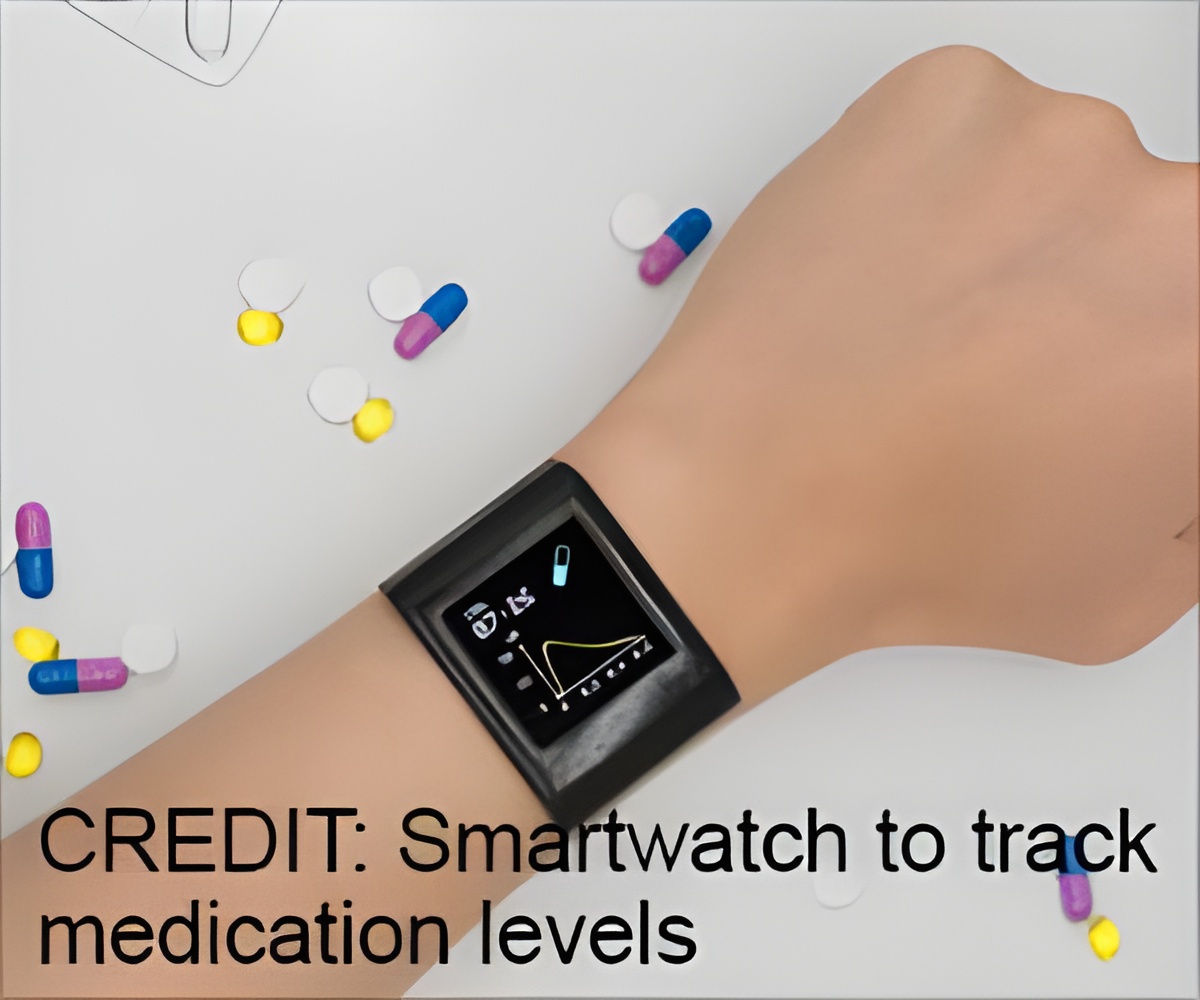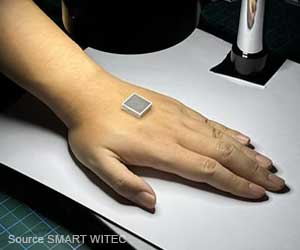Custom smartwatch which can detect drug levels in the body by measuring sweat has been developed. The technology can offer personalized treatments for individuals.

TOP INSIGHT
Smartwatch which can track drug levels in the body by measuring unique electrochemical signal of the drug in the sweat have been developed. This technology can offer personalized treatment to individuals.
Read More..
There are guidelines for factors such as patients' weight and age. But in addition to these basic differentiators, our body chemistry constantly changes -- depending on what we eat and how much we've exercised. And on top of these dynamic factors, every individual's genetic makeup is unique and hence responses to medications can vary. This affects how fast drugs are absorbed, take effect and get eliminated from an individual.
According to the researchers, current efforts to personalize the drug dosage rely heavily on repeated blood draws at the hospital. The samples are then sent out to be analyzed in central labs.
These solutions are inconvenient, time-consuming, invasive and expensive. That is why they are only performed on a small subset of patients and on rare occasions.
"We wanted to create a wearable technology that can track the profile of medication inside the body continuously and non-invasively," said study leader Sam Emaminejad, an assistant professor of electrical and computer engineering at UCLA. "This way, we can tailor the optimal dosage and timing of the intake for each individual. And using this personalization approach, we can improve the efficacy of the therapeutic treatments."
The team's experiment tracked the effect of acetaminophen, a common over-the-counter pain medication, on individuals over the period of a few hours.
This allowed the researchers to detect changes in body chemistry, without needing subjects to work up a sweat by exercising. As different drugs each have their own unique electrochemical signature, the sensor can be designed to look for the level of a particular medication at any given time.
"This technology is a game-changer and a significant step forward for realizing personalized medicine," said study co-author Ronald W. Davis, a professor of biochemistry and genetics at Stanford Medical School.
"Emerging pharmacogenomic solutions, which allow us to select drugs based on the genetic makeup of individuals, have already shown to be useful in improving the efficacy of treatments. So, in combination with our wearable solution, which helps us to optimize the drug dosages for each individual, we can now truly personalize our approaches to pharmacotherapy."
What makes this study significant is the ability to accurately detect a drug's unique electrochemical signal, against the backdrop of signals from many other molecules that may be circulating in the body and in higher concentrations than the drug, said the study's lead author Shuyu Lin, a UCLA doctoral student and member of Emaminejad's Interconnected and Integrated Bioelectronics Lab (I²BL).
Emaminejad added that the technology could be adapted to monitor medication adherence and drug abuse.
"This could be particularly important for individuals with mental health issues, where doctors prescribe them prolonged pharmacotherapy treatments," he said. "The patients could benefit from such easy-to-use, noninvasive monitoring tools, while doctors could see how the medication is doing in the patient."
Source-Eurekalert
 MEDINDIA
MEDINDIA




 Email
Email





